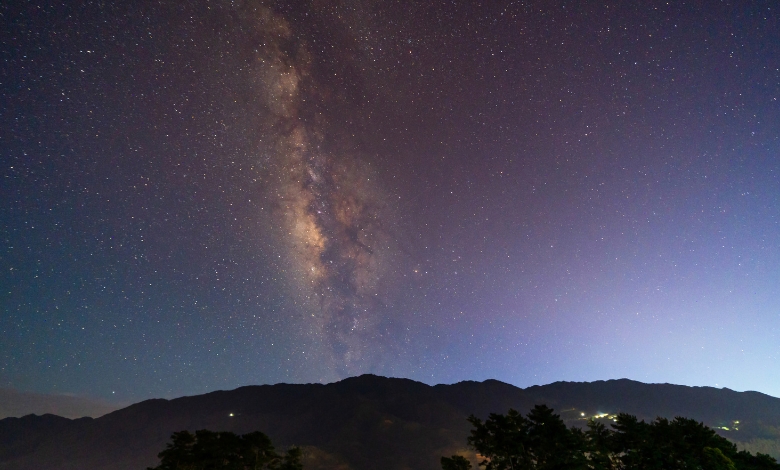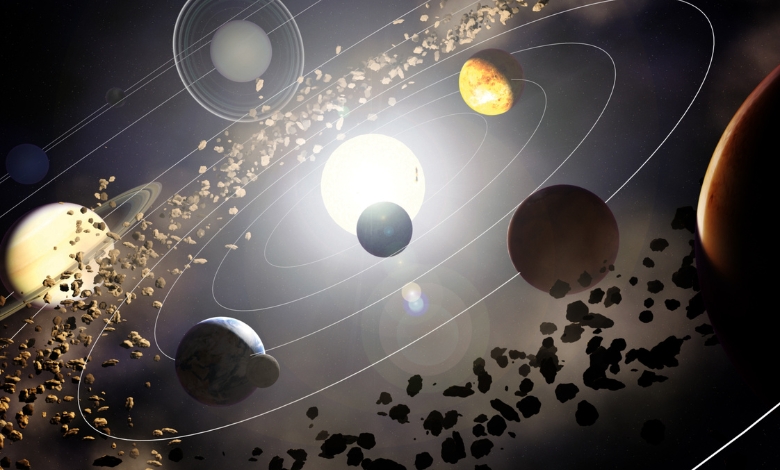Do we age differently on different planets? Discover how gravity, velocity, and planetary rotations affect the way we experience time.
Imagine this: you’re having a cup of coffee and seeing the sunrise on Earth. Meanwhile (or at least, so you believe), an astronaut on Jupiter is having a cup of coffee and seeing a sunrise, too. But here’s a twist, if both of you lived for precisely one year, then you could have actually experienced time differently.
Sounds like science fiction, isn’t it? Well, in Einstein’s theory of relativity, time isn’t as uniform as one perceives. Gravity, velocity, and even planet rotations can actually have an impact on how one experiences and measures time. This idea is a key focus in interplanetary impact studies, where scientists explore how different planetary environments influence time perception and aging.
So, could a trip to a new planet actually slow down your aging? Would an astronaut, when returning to Earth, arrive younger than a twin? Buckle up, for we’re about to tackle one of the most head-twisting concepts in science.
Article Breakdown
Breaking Down the Science: Do We Actually Age Differently?

1. Does Time Actually Differ Elsewhere in the Cosmos?
If you’ve heard of gravitational time dilation, then you have part of the picture. What I mean by that is, when gravity is strong, time will pass at a slower pace.
For example, a Jupiter clock (which experiences much greater gravity than one on Earth) will tick a little slower than an Earth clock. Yet, it is such a small variation that over a span of a human life, it could only contribute a matter of a few seconds.
Mind-Blowing Example: If you lived in a location near a black hole, time dilation would be extreme. In the movie Interstellar, an hour in a planet with high gravity near a black hole corresponded to seven years in real life. That’s real physics!
2. What About Planets That Move Faster?
Ever wondered why astronauts age a little less? That’s a consequence of velocity-dependent time dilation, one of Einstein’s laws of relativity. The faster you move, the less time will pass for you.
Astronauts orbiting at high velocities near Earth age fractions of a second less than humans at ground level. Not a lot, but at velocities near lightspeed, time will slow down incredibly.
Imagine running at a treadmill with everyone else walking. To your mind, your minutes go at a normal pace, but for an observer, your pace is in slow motion. That’s when velocities become high.
3. Biological Aging: Does Space Travel Make You Age Faster?
Now let’s talk about your body. Even if time ticks slower, does your biological aging change? Turns out, space itself is a tough place to live. Here’s how it affects aging:
- Muscle & Bone Loss: In microgravity, astronauts lose 1-2% of bone mass per month, equivalent to a decade of aging on Earth.
- Radiation Exposure: Earth’s atmosphere protects us from cosmic rays. In space, radiation can damage DNA, speeding up cell aging and increasing cancer risk.
- Weird Biological Effects: NASA’s famous Twin Study showed that astronaut Scott Kelly’s telomeres (DNA endcaps linked to aging) lengthened in space, but then shortened rapidly upon return. Aging in space is… complicated.
4. Could We Slow Down Aging by Living Elsewhere?
The big question: if we wanted to live longer, which planet would be best?
- Jupiter (higher gravity) might slow time slightly, but extreme radiation makes it unlivable.
- Mars (weaker gravity) wouldn’t slow time, but its longer years mean you’d have fewer birthdays in a lifetime. A 60-year-old Earthling would only be 32 in Martian years!
- A Fast-Moving Spacecraft traveling near the speed of light would dramatically slow your aging relative to Earth. You could return after 50 Earth years and have only aged a few!
My Personal Perspective: What Does This Mean for You?
Growing up, I was obsessed with space. I remember staring at the night sky, wondering if time worked differently out there. As an adult, learning about relativity and time dilation made me realize just how flexible time really is.
But here’s the kicker: even though planets can influence how we measure time, your best bet to age well isn’t on another planet, it’s right here on Earth. Good health, exercise, and avoiding stress are still your top longevity hacks.
However, the next time you look at the stars, remember: time isn’t ticking at the same rate everywhere. Somewhere, someone might just be aging a little differently than you.
Key Takings
- While planets won’t dramatically alter your lifespan, relativity proves that time is not as fixed as we think. If humanity ever develops near-light-speed travel, the first travelers might return home decades later, still youthful while Earth has aged.
- Until then, our best bet is mastering time on our own terms. Spend it wisely, live fully, and appreciate the fact that, at least for now, we’re all aging at roughly the same rate.
- Want to keep your mind blown? Check out this video explaining time dilation in action! (Insert link)
- What do you think? Would you take a trip near a black hole to slow down time? Let me know in the comments.
Useful Articles:
- Einstein’s Theory of Special Relativity: Explains time dilation and how motion affects the experience of time according to Einstein’s theory.
- The ‘Twin Paradox’: Discusses the twin paradox as a way to understand the phenomenon of time dilation.
- About NASA’s Twins Study: Highlights the findings of NASA’s research on how space travel impacts the human body.



